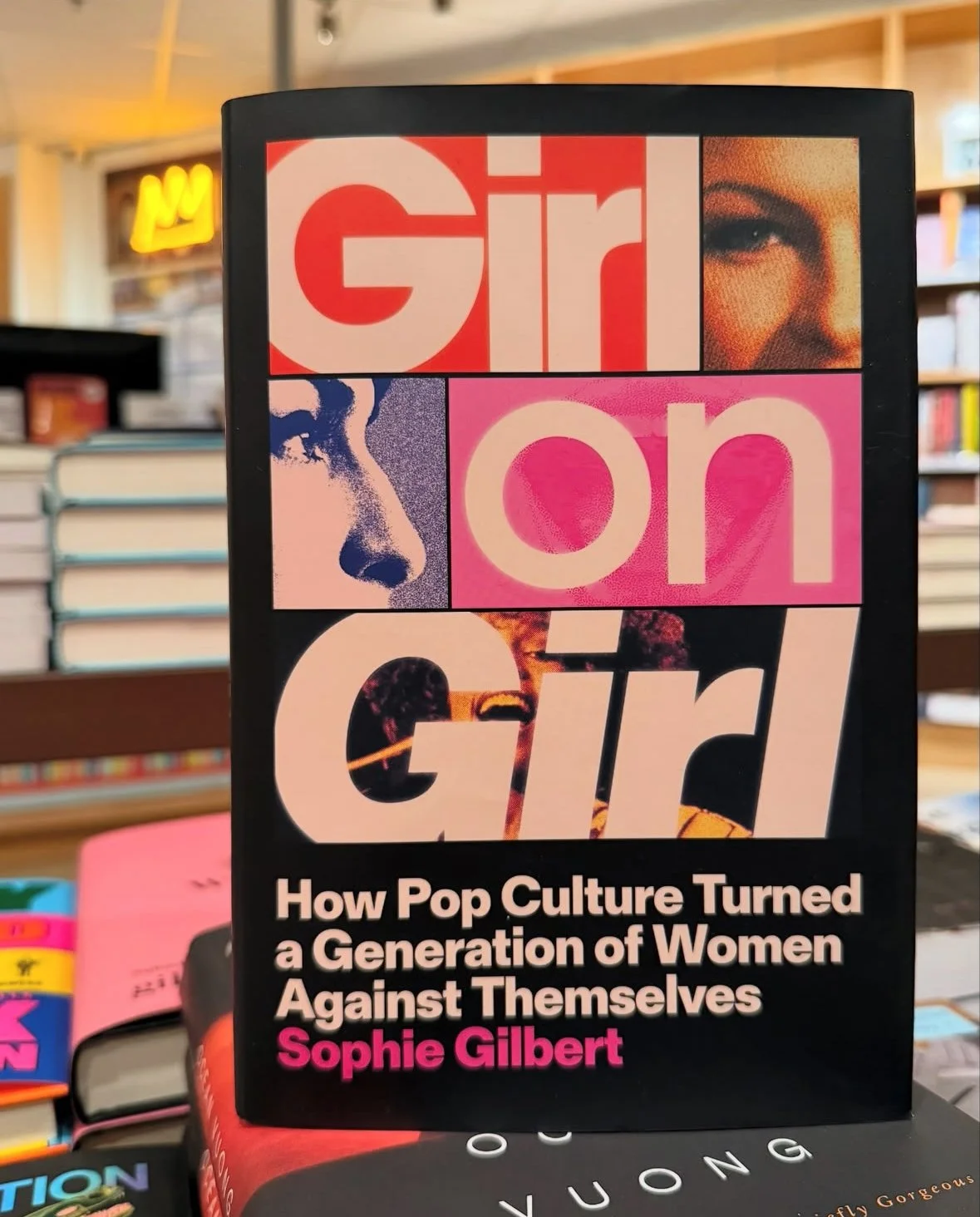‘GIRL ON GIRL’
BY SOPHIE GILBERT
How Pop Culture Turned a Generation of Women Against Themselves
BOOK REVIEW
When I say you *have* to read this book…
Girl on Girl is a searing look at how media — music, film, reality tv etc — has warped, and often sabotaged, the way women see themselves. Inside, the investigation is forensic, excoriating and, as one reviewer claims, will potentially save you thousands of pounds in therapist bills.
Split into ten essays, Sophie Gilbert (journalist and Pulitzer Prize finalist), revisits the 1990s-2000s culture we grew up immersed in. Think American Pie, The Simple Life, Spice Girls, MySpace, Big Brother, America’s Next Top Model, Abercrombie and more…
But this is far from a cutesy nostalgia trip. With her revisionist lens, Gilbert unpacks the seamy side of these seemingly innocuous touchstones — revealing how they harmed our ideas of girlhood, womanhood and self-perception.
Here, it’s worth pointing out that your reading of the book will depend on your age/where you are on the millennial spectrum. For Gilbert, an older millennial, the majority of the cultural events she identifies unfolded while she was a teenager. Whereas, younger millennials like myself (who, chances are, weren't reading Rolling Stone profiles and watching the R-rated American Beauty at the tender age of 6) were likely more oblivious to the cultural maelstrom in real time.
While her project is undeniably successful — the writing style is effortlessly compelling, leaping nimbly from example to example. To a certain extent, the book feels half finished — and Gilbert holds her hands up to this (‘no way is this book complete’ she writes). But even what she does promise in her ‘Introduction’ — ‘analysing…all the ways in which things went wrong’ to envision ‘a more powerful way forward’ — isn’t fully delivered.
Throughout the book, we’re still left with lingering questions, what has the impact been on our lives today? How can we avoid history repeating itself? Without enough of these answers, the process of intricately raking through the past seems slightly futile.
The obvious way to satisfy the reader, and achieve Gilbert’s aims, would be to build on the book’s memoiristic slant. I think the moments where she refers back to herself (how her cultural upbringing has shaped her recent experience of motherhood) are useful — they anchor her argument/bring her case studies to life in a more three-dimensional way. However, she rarely inserts her own voice, and so the narrative can feel like a catalogue of examples which are stylishly analysed, but not to the extent that we are given solid evidence as to why this is relevant to us, today.
This question of how to move forward — how can we avoid history repeating itself? — this is the book’s fault line. Gilbert flags examples such as TikTok trad-wives, Ozempic, the overturning of Roe v Wade, Donald Trump 2.0, and the rise of Andrew Tate to suggest we’ve fallen into the same traps. But I think it’s too much of a stretch to draw a line of correlation (across three decades) between these contemporary events and the representation of women in 90/00s pop culture, without first laying out a full constellation.
As a result, the book didn’t feel future-facing enough — any attempt to bring the argument into the here and now, to connect the dots, felt tacked on (almost like an addendum to the main thread). This includes the final essay, sub-titled ‘rewriting a path towards power’, which I don’t think worked hard enough to tie everything together. Other than saying there is a connection between the way women were portrayed in the media (hysterical, vulnerable, idiotic, easily exploited) and their perceived unsuitability for political office, there’s not much beyond that. Just a warning that we need to ‘expand our conception of what power for women looks like’.
Gilbert alludes to a sea-change, sparked by cultural events like Fleabag and I May Destroy You — but even with them on our radar, it did little to halt the political ominshambles of today (Trump’s re-election for example)… and slightly invalidates the main argument. At its core, Girl on Girl therefore becomes a question of to what extent does our culture influence real-world politics? And, perhaps on the flip side, how can politics safe-guard our culture? I think the jury’s still out on that one.



